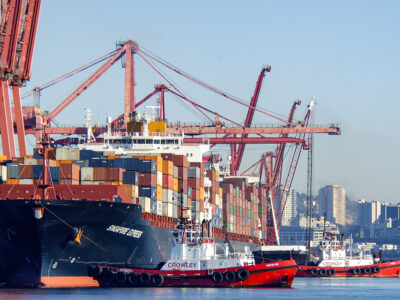Undeniably, the global tech sector has weathered a rough start to the new year – following an already difficult 2022. But, in contrast to these persisting global economic headwinds, the pace of VC capital deployment in MENA has seen exponential growth. Particularly in the GCC, where in Saudi for instance, VC capital deployment has increased from $40 million in 2017 to approximately $1 billion in 2022.
Over the past months, we have witnessed tens of thousands of jobs being slashed across both blue-chip giants and many smaller tech firms moved in lockstep. Now, the bank run on Silicon Valley Bank (SVB) which seemed to have been spurred by a combination of groupthink and panic has further cut into the ecosystem. It has become clear that the recently boisterous startup funding has seemingly slowed down to a trickle in the face of rising interest rates and muted growth.
That being said, the MENA startup ecosystem seems to have found lifting off in a position with significant tailwind, propelling the ecosystem forward.
MENA’s tech startup growth
Across MENA we seem to be in an auspicious growth stage; boiling with innovative tech startups, that continue to attract significant funds. We are witnessing foundational growth rippling across the GCC and wider MENA. Within this surge Saudi is clearly in the pole position to lead the pack – driven by its young population and tech adoption.
Saudi Arabia is the largest economy in the region, constituting approximately around a third of MENA’s GDP and boasts a comparatively high GDP per capita at $20,110. It is a young economy with over 70 percent of the population under the age of 30. This means that cracking the Saudi Arabian market is necessary for most MENA startups that want to achieve unicorn status.
The acceleration of Saudi’s economic and technological ecosystem is also driven by substantial tech infrastructure, world leading consumer tech (and social media) adoption, and the sweeping Vision 2030 macroeconomic and regulatory reforms.
We can expect a slowdown in 2023 but we are still at a very low base in comparison to reference regions like Latin America and India. The ratio of VC deployment to GDP in MENA, shows that VC yearly invested capital still has room to grow at least 5X to match that of Latin America and upwards of even 10X to meet India – before catching up with peer regions.
The enormous appetite for digital and social consumption combined with critical gaps in offline offerings, create leapfrog opportunities for growth and tech innovation. Startups simply need to focus on their consumers pain points and identify an opportunity big enough that allows for viral adoption of the right solution. There are a lot of these pain-points in the economy, and they are ripe for the picking for the right entrepreneur.

Arguably, in current conditions the GCC VC market is still very much a “seller’s market”. Although it’s no longer as frothy, here is still a lot of dry powder in the region and a slew of new VCs on the block, with Emkan Capital being just one of them.
If you are an entrepreneur that is addressing tangible issues, whilst leveraging the beneficial societal and economical macro factors you will have no problem getting access to funding. Nevertheless, many VC funds are again cautious in deploying funds with more grounded and realistic outlooks after having some frenzied valuations left investors disappointed in 2021 and 2022. Now valuations seem to have come back down to earth, which is a healthy place to be for sustainable deployment.
Despite the abundance of regional dry powder, the capital levels are still considered limited by global standards, and what the ecosystem lacks is more participation from tier-1 international VCs; this will be crucial as the ecosystem matures. Local or regional VCs may not have the financial resources to invest in startups at the same scale as international VCs. This can dampen the potential of startups and the overall ecosystem, especially post series B and C.
Having a top-tier international VC invest in earlier rounds signals to other investors that the ecosystem is producing quality deal flow, which can be procyclical and attract more investors to the ecosystem. This ultimately leads to more scrutiny and robustness in the due diligence cycle startups are exposed to, which ends up levelling up the quality of the ecosystem as a whole.

Established international VCs benefit from vast network of connections in various industries, virtue of substantial investments in numerous startups globally. This network can be leveraged to help startups cross border growth and expansion.
Lastly, founders should not underestimate the significant impact that international VCs can have through providing vital access to international markets, players, businesses, and investors. Startups in regional ecosystems may have limited access to global markets, which can restrict their growth potential. International VCs can leverage their global network to help startups expand their business into other countries.
The environment is fertile, the VCs are increasingly waking up to opportunities, and more than ever it is critical for founders to be mindful of working with the right investors and look beyond the equity investment.









